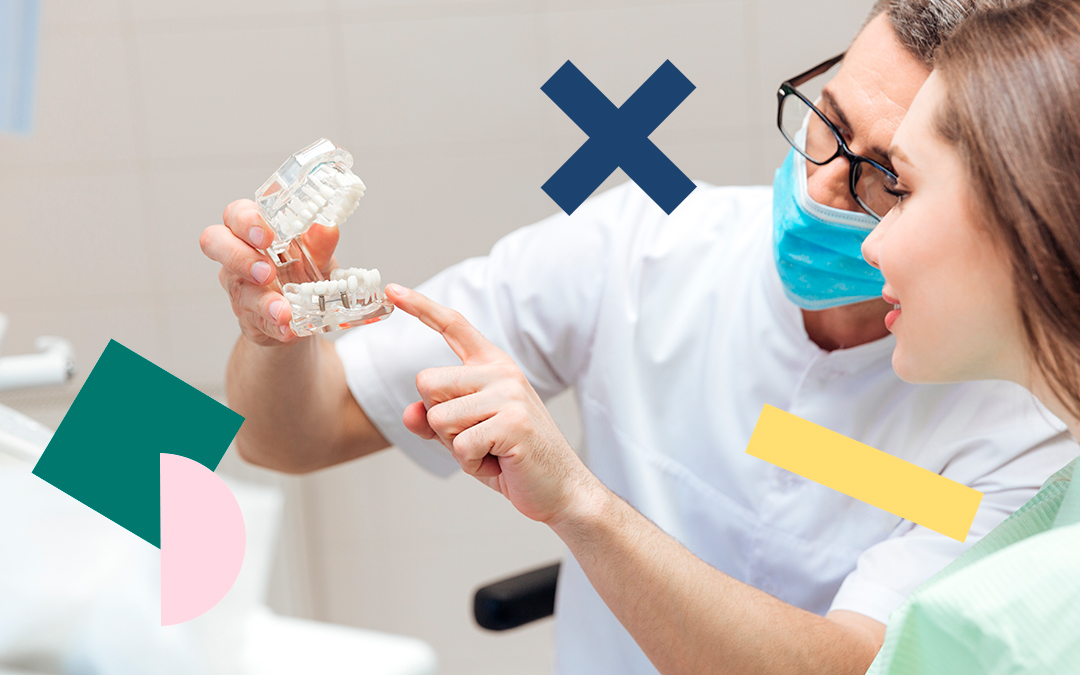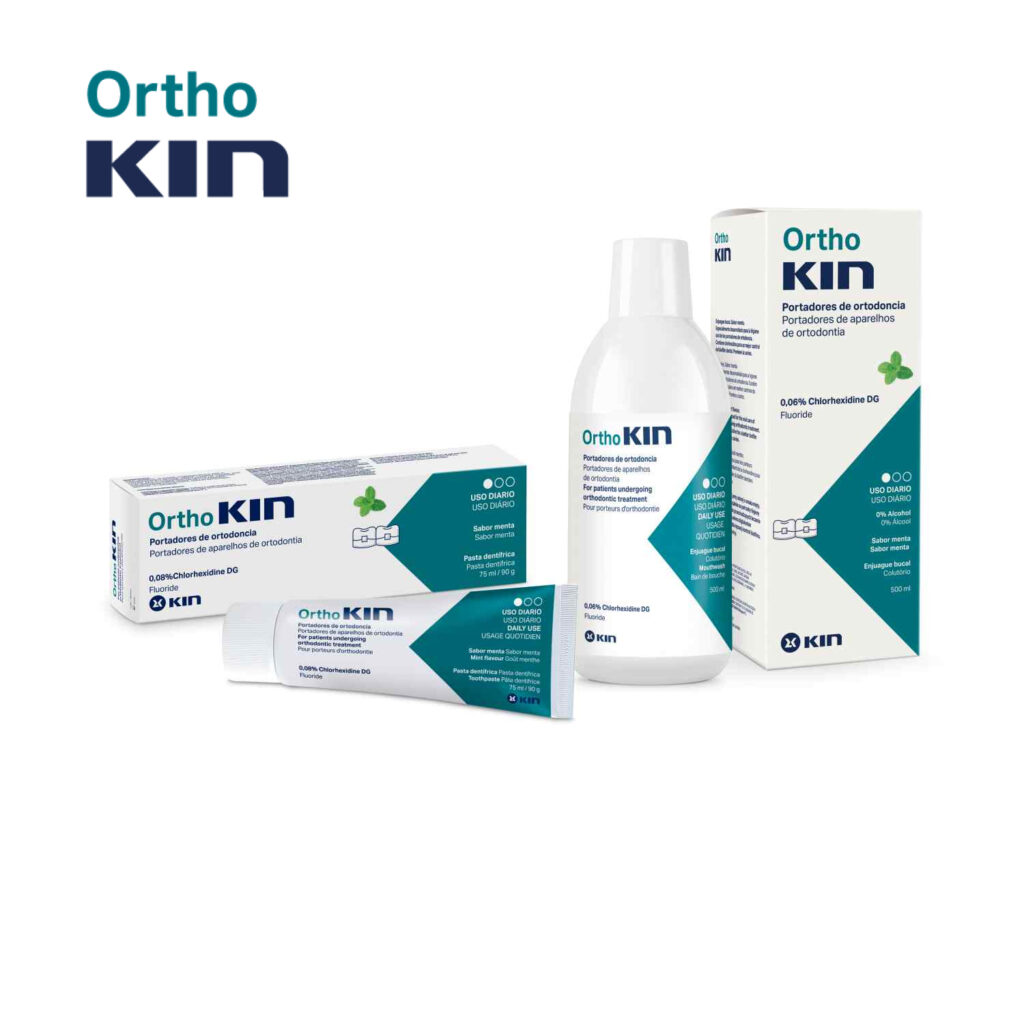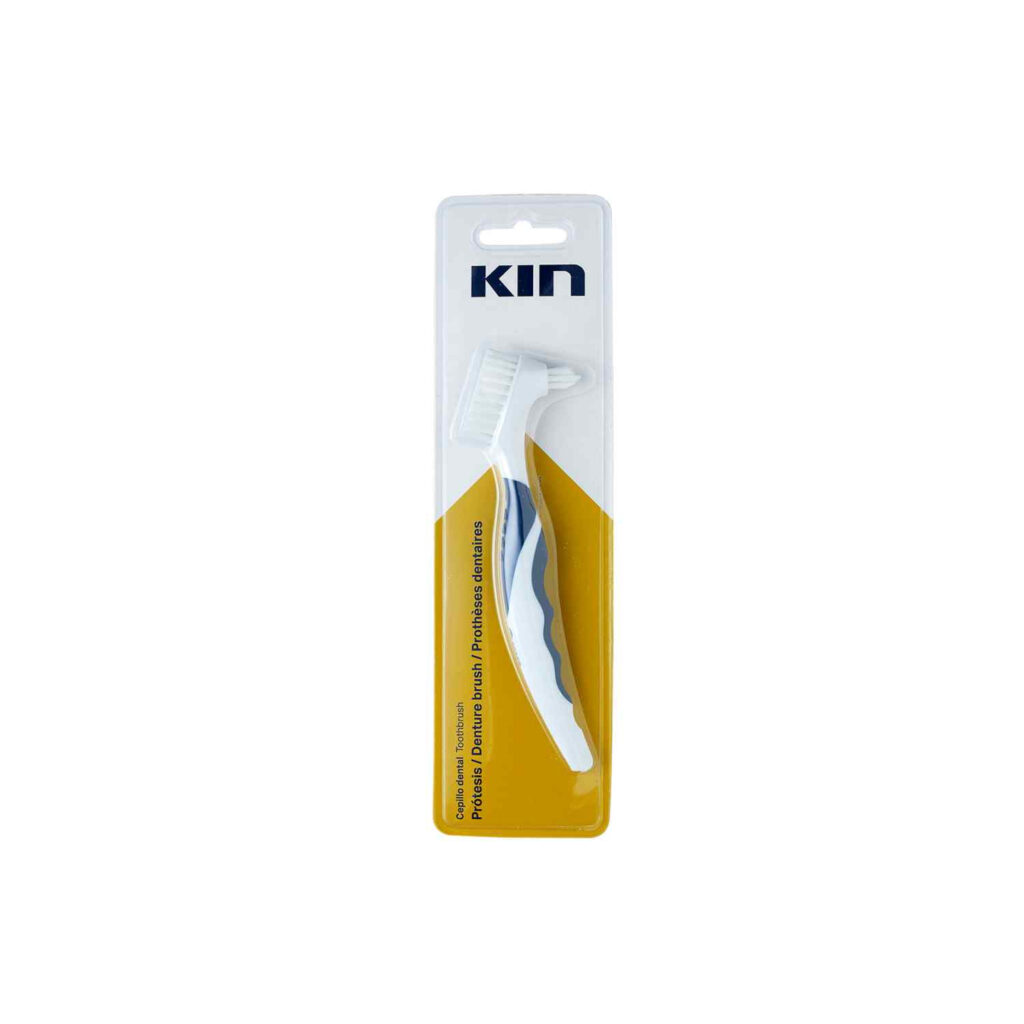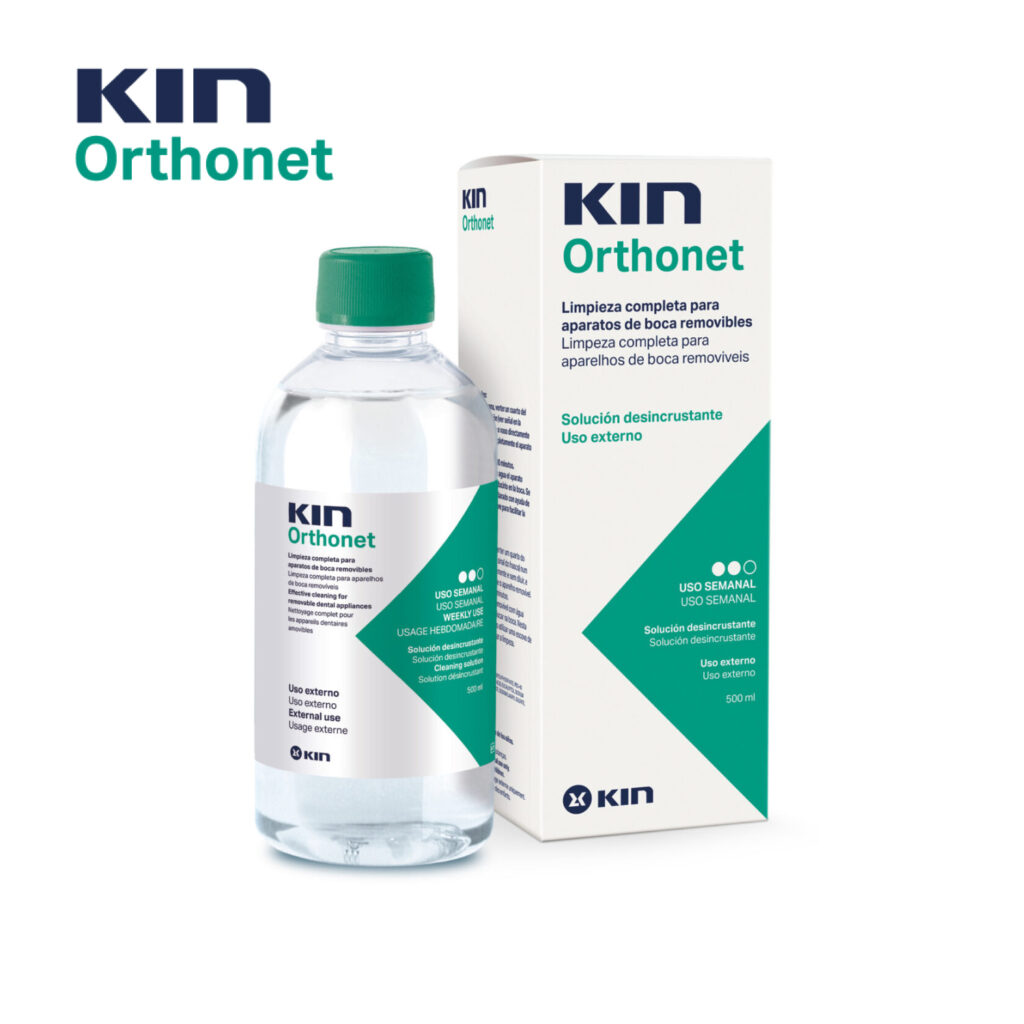Thanks to the fitting of dental prostheses, it is nowadays possible to replace lost or damaged teeth, completely restoring their functionality. To solve all types of oral problems, there are different types of dental prostheses adapted to the needs of each patient.
Generally speaking, dental prostheses are classified into two main groups: fixed and removable. Which is better? We analyse the advantages offered by each of them to facilitate a correct choice in each particular case.
What is a dental prosthesis?
In dentistry, a dental prosthesis is any device intended to replace the function of one or more missing or defective teeth. These devices include implants, crowns, bridges, veneers and dentures.
Dental prostheses can be removable or fixed. When deciding whether to choose one or the other, it is necessary to consider the number of teeth to be replaced and to carry out a prior assessment by a qualified professional.
Types of dentures
The speciality responsible for fitting dental prostheses is known in dentistry as prosthodontics. This encompasses the fitting of all types of prostheses that replace the normal function of teeth damaged for various reasons.
When a patient has lost part of his or her teeth, the fitting of a dental prosthesis is an excellent aid both functionally and aesthetically, and the dentist will be responsible for recommending the most suitable type of prosthesis to the patient according to his or her condition.
Fixed dental prosthesis
Fixed dental prostheses are those that are permanently placed in the oral cavity. Depending on the condition, they are attached directly to other natural teeth or to the jaw bone".
A fixed dental prosthesis has the advantage that the patient completely forgets that he or she is wearing it.
It is a device that adapts naturally to the mouth, restoring chewing ability almost as if it were the original teeth.
Just like natural teeth, fixed prostheses require daily care and maintenance. To prevent damage, proper oral hygiene is essential for the care of the original teeth and the prostheses that accompany them.
Removable dental prosthesis
Removable dentures are a substitute for natural teeth that can be removed and replaced as needed. They are less expensive to fit, but can be more uncomfortable and unstable for some patients.
The main reason why a removable denture is recommended is a lack of thickness or consistency in the jaw bone. If there is not enough bone or there is a pathology, it is not possible to fit a fixed prosthesis, so the best option is to resort to an alternative method.
Removable dental prostheses can be complete or partial, and can be made in the classic removable form, or they can be fitted whenever the patient's condition permits, like a denture on implants, known as a semi-fixed prosthesis. The latter is attached to the jawbone on an anchor, with the possibility of removing it when necessary, providing greater support and comfort. Keep your dentures impeccable with our range of products.
Discover our products for dentures and removable appliances

Which dental prosthesis is best?
The choice of one type of dental prosthesis or another will depend on the patient's situation. A qualified prosthodontist will make a recommendation to the patient after an accurate examination and diagnosis of the situation of the oral cavity.
This examination must take into account the number of teeth to be replaced, as well as the initial condition of the jawbone and the oral mucosa. If necessary, bone grafting is possible if the jawbone is thin, or the previous restoration of damaged gums.
Tips for choosing a dental prosthesis
There are several factors to take into account when choosing the most suitable dental prosthesis for each patient. From the budget, to the aesthetic aspect or the care of these, there are many considerations before making the final decision.
Cost
The type of dental prosthesis determines the total treatment budget. One of the factors that directly influences the choice of a fixed or removable dental prosthesis is its price. This can be higher when the treatment requires some kind of complicated intervention, such as surgery or intervention by a specialised professional.
Initial situation of the patient
After analysing the state of oral health, it is possible to know which possibilities are best suited to the patient. Taking into account the number of teeth to be replaced, the specific location of the missing or damaged teeth, and the initial space of the gum and jawbone, the treatment will be adapted to prioritise comfort and rapid recovery.
Expected results
What results does the patient expect? In a young person, aesthetics is a very important factor to take into account. It is not so important when the teeth to be replaced are of secondary importance, as the main objective is functionality in chewing.
Specialisation of the professional
Depending on the professional who assists the patient, their speciality may be focused on the fitting of certain types of dental prostheses. For this reason, it is important to compare opinions and recommendations in order to find the best solution for each case.
Care of dental prostheses
The care and maintenance of each type of dental prosthesis is different. While removable prostheses are easier to clean by removing them from the mouth and washing them separately with a mild detergent, the care of fixed prostheses requires more thorough cleaning with different products. specific products for dental prosthesesThe care of fixed prostheses requires a more thorough cleaning with different products as recommended for the oral hygiene of the original teeth.
Consult a professional expert in prosthodontics about the best alternatives, and choose the one that best suits you from among the models of fixed or removable prostheses that currently exist.


 What to consider when choosing the best electric toothbrush?
What to consider when choosing the best electric toothbrush? How to relieve pain with newly placed braces?
How to relieve pain with newly placed braces? How to keep your breath fresh?
How to keep your breath fresh?





